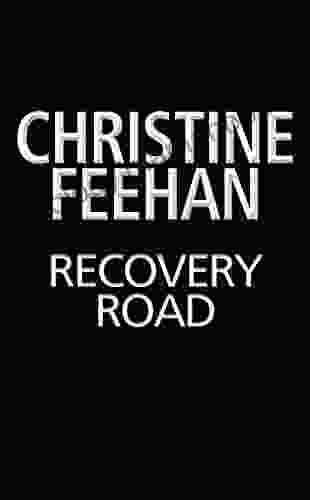How To Dismantle Systems of Oppression to Protect People & Planet

Systems of oppression are a major root cause of the environmental crisis and social injustice. These systems create and perpetuate inequality, discrimination, and violence based on race, gender, class, sexuality, disability, and other factors. They are designed to benefit the few at the expense of the many, and they have devastating consequences for people and planet.
The environmental crisis is a direct result of the systems of oppression that have allowed a small number of corporations and individuals to profit from the destruction of the planet. These systems have created a culture of consumption and waste that is destroying our natural resources and polluting our environment. They have also led to the displacement of indigenous peoples from their traditional lands, which has further contributed to environmental degradation.
Social injustice is also a direct result of systems of oppression. These systems create and perpetuate poverty, homelessness, hunger, and lack of access to basic necessities like healthcare and education. They also lead to discrimination and violence against marginalized groups of people.
4.9 out of 5
| Language | : | English |
| File size | : | 5068 KB |
| Text-to-Speech | : | Enabled |
| Screen Reader | : | Supported |
| Enhanced typesetting | : | Enabled |
| X-Ray | : | Enabled |
| Word Wise | : | Enabled |
| Print length | : | 217 pages |
The systems of oppression that are destroying our planet and harming our people are interconnected and mutually reinforcing. We cannot address one without addressing the others. We must dismantle these systems in order to create a just and sustainable world for all.
There are many different types of systems of oppression, including:
- Racism: The systemic oppression of people of color based on their race or ethnicity.
- Sexism: The systemic oppression of women based on their sex or gender.
- Classism: The systemic oppression of poor and working-class people based on their economic status.
- Heterosexism: The systemic oppression of LGBTQ people based on their sexual orientation or gender identity.
- Ableism: The systemic oppression of people with disabilities based on their physical, mental, or developmental disabilities.
- Ageism: The systemic oppression of older people based on their age.
- Xenophobia: The systemic oppression of immigrants and refugees based on their nationality or country of origin.
These are just a few of the many different types of systems of oppression that exist in the world. Each of these systems creates and perpetuates its own unique forms of inequality, discrimination, and violence.
Systems of oppression work by creating and reinforcing social hierarchies that benefit the privileged few at the expense of the marginalized many. These hierarchies are based on factors such as race, gender, class, sexuality, disability, and age.
Systems of oppression work through a variety of mechanisms, including:
- Laws and policies: Laws and policies can be used to create and perpetuate inequality, discrimination, and violence. For example, racist laws and policies have been used to justify slavery, segregation, and mass incarceration.
- Social norms: Social norms can also be used to create and perpetuate inequality, discrimination, and violence. For example, sexist social norms can lead to the devaluation of women's work and the denial of women's rights.
- Cultural representation: Cultural representation can also be used to create and perpetuate inequality, discrimination, and violence. For example, racist and sexist cultural representations can reinforce negative stereotypes about marginalized groups of people.
- Violence: Violence is often used to maintain systems of oppression. For example, police brutality is used to suppress dissent and maintain control over marginalized communities.
Systems of oppression are complex and multifaceted. They can be difficult to identify and understand, but they are essential to understanding the root causes of the environmental crisis and social injustice.
The consequences of systems of oppression are devastating for both people and planet.
For people, systems of oppression lead to:
- Poverty and economic inequality
- Homelessness and lack of access to housing
- Hunger and lack of access to food
- Inadequate healthcare and education
- Discrimination and violence
- Mental and physical health problems
- Death
For planet, systems of oppression lead to:
- Environmental degradation and pollution
- Climate change
- Deforestation
- Water scarcity
- Mass extinction of species
Dismantling systems of oppression is a complex and challenging task, but it is essential to creating a just and sustainable world for all. There are many different ways to dismantle systems of oppression, and the best approach will vary depending on the specific system and the context in which it operates. However, some general principles that can be applied to all systems of oppression include:
- Education: Raising awareness about systems of oppression and their consequences is essential to building a movement for change. We need to educate ourselves and others about the history and present-day reality of oppression, and we need to challenge the dominant narratives that perpetuate it.
- Activism: Taking action to challenge and dismantle systems of oppression is essential to creating change. This can involve participating in protests, lobbying for policy changes, or supporting organizations that are working to dismantle oppression.
- Solidarity: Building solidarity with marginalized groups of people is essential to dismantling systems of oppression. We need to stand in solidarity with those who are most affected by oppression, and we need to use our privilege to amplify their voices and support their struggles.
Dismantling systems of oppression will not be easy, but it is essential to creating a just and sustainable world for all. We must educate ourselves, take action, and build solidarity with marginalized groups of people if we want to create a better future.
Systems of oppression are a major root cause of the environmental crisis and social injustice. These systems create and perpetuate inequality, discrimination, and violence based on race, gender, class, sexuality, disability, and other factors. We must dismantle these systems to protect people and planet.
Dismantling systems of oppression is a complex and challenging task, but it is essential to creating a just and sustainable world for all. We must educate ourselves, take action, and build solidarity with marginalized groups of people if we want to create a better future.
4.9 out of 5
| Language | : | English |
| File size | : | 5068 KB |
| Text-to-Speech | : | Enabled |
| Screen Reader | : | Supported |
| Enhanced typesetting | : | Enabled |
| X-Ray | : | Enabled |
| Word Wise | : | Enabled |
| Print length | : | 217 pages |
Do you want to contribute by writing guest posts on this blog?
Please contact us and send us a resume of previous articles that you have written.
 Top Book
Top Book Novel
Novel Fiction
Fiction Nonfiction
Nonfiction Literature
Literature Paperback
Paperback Hardcover
Hardcover E-book
E-book Audiobook
Audiobook Bestseller
Bestseller Classic
Classic Mystery
Mystery Thriller
Thriller Romance
Romance Fantasy
Fantasy Science Fiction
Science Fiction Biography
Biography Memoir
Memoir Autobiography
Autobiography Poetry
Poetry Drama
Drama Historical Fiction
Historical Fiction Self-help
Self-help Young Adult
Young Adult Childrens Books
Childrens Books Graphic Novel
Graphic Novel Anthology
Anthology Series
Series Encyclopedia
Encyclopedia Reference
Reference Guidebook
Guidebook Textbook
Textbook Workbook
Workbook Journal
Journal Diary
Diary Manuscript
Manuscript Folio
Folio Pulp Fiction
Pulp Fiction Short Stories
Short Stories Fairy Tales
Fairy Tales Fables
Fables Mythology
Mythology Philosophy
Philosophy Religion
Religion Spirituality
Spirituality Essays
Essays Critique
Critique Commentary
Commentary Glossary
Glossary Bibliography
Bibliography Index
Index Table of Contents
Table of Contents Preface
Preface Introduction
Introduction Foreword
Foreword Afterword
Afterword Appendices
Appendices Annotations
Annotations Footnotes
Footnotes Epilogue
Epilogue Prologue
Prologue George Manos
George Manos Edited By Donna Farland Smith
Edited By Donna Farland Smith Dix Bruce
Dix Bruce Kirsten Corley
Kirsten Corley Jesse Tyler Ferguson
Jesse Tyler Ferguson Tarun Khanna
Tarun Khanna Teddy Crispin
Teddy Crispin Jay Rogoff
Jay Rogoff Robert C Allen
Robert C Allen Vanisha Chavda
Vanisha Chavda John G Hemry
John G Hemry Selena Fisk
Selena Fisk J Lynn Hicks
J Lynn Hicks Stephen Dando Collins
Stephen Dando Collins Jay Mcgraw
Jay Mcgraw Christian Sebastian Loh
Christian Sebastian Loh Brad W King
Brad W King Fiona Grace
Fiona Grace Carl Sagan
Carl Sagan Peter C Brown
Peter C Brown
Light bulbAdvertise smarter! Our strategic ad space ensures maximum exposure. Reserve your spot today!
 Devin RossFollow ·3.8k
Devin RossFollow ·3.8k Leon FosterFollow ·5.6k
Leon FosterFollow ·5.6k Clay PowellFollow ·3.6k
Clay PowellFollow ·3.6k Fabian MitchellFollow ·15.7k
Fabian MitchellFollow ·15.7k Clayton HayesFollow ·4.4k
Clayton HayesFollow ·4.4k Aron CoxFollow ·4.6k
Aron CoxFollow ·4.6k Kurt VonnegutFollow ·6.8k
Kurt VonnegutFollow ·6.8k Gabriel MistralFollow ·17.4k
Gabriel MistralFollow ·17.4k

 Vernon Blair
Vernon BlairThe Woman I Met in My Dream: An Unforgettable Night of...
As the veil of night...

 Carlos Fuentes
Carlos FuentesThe Ultimate Guide to Healthy Eating for Toddlers: Meal...
As a parent of a...

 Peter Carter
Peter CarterInside My Autistic Mind: A Journey of Self-Discovery and...
Autism spectrum disorder (ASD) is a...

 Isaac Asimov
Isaac AsimovA Journey Through Jane Austen's Literary Masterpieces:...
Jane Austen, the renowned English...

 Hank Mitchell
Hank MitchellAdvancements in Textiles: Science and Technology by...
The textile...

 Troy Simmons
Troy SimmonsRecovery Road: An Odyssey of Hope and Redemption by...
Recovery Road is a...
4.9 out of 5
| Language | : | English |
| File size | : | 5068 KB |
| Text-to-Speech | : | Enabled |
| Screen Reader | : | Supported |
| Enhanced typesetting | : | Enabled |
| X-Ray | : | Enabled |
| Word Wise | : | Enabled |
| Print length | : | 217 pages |












